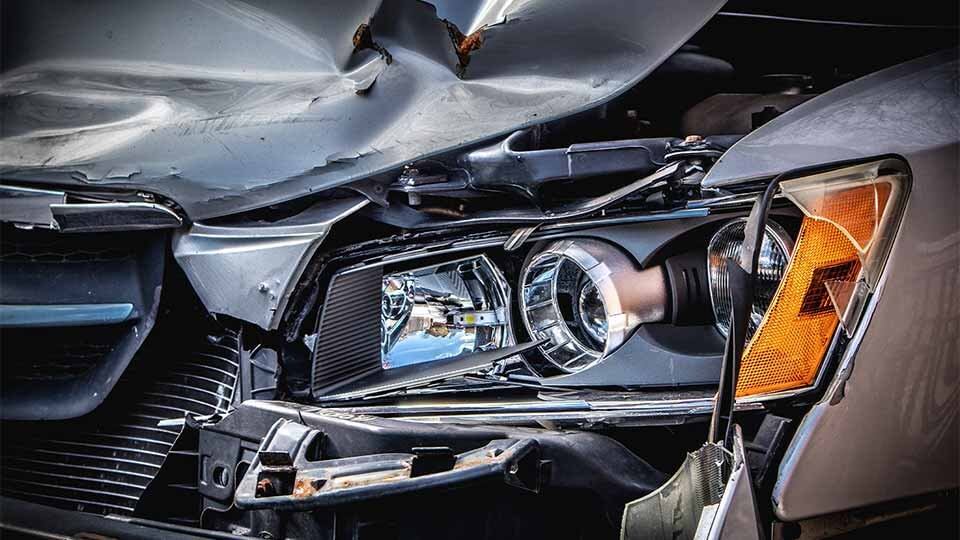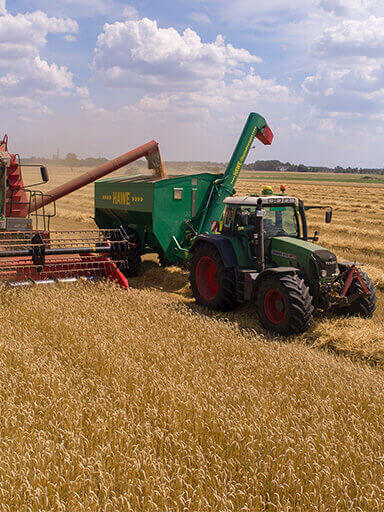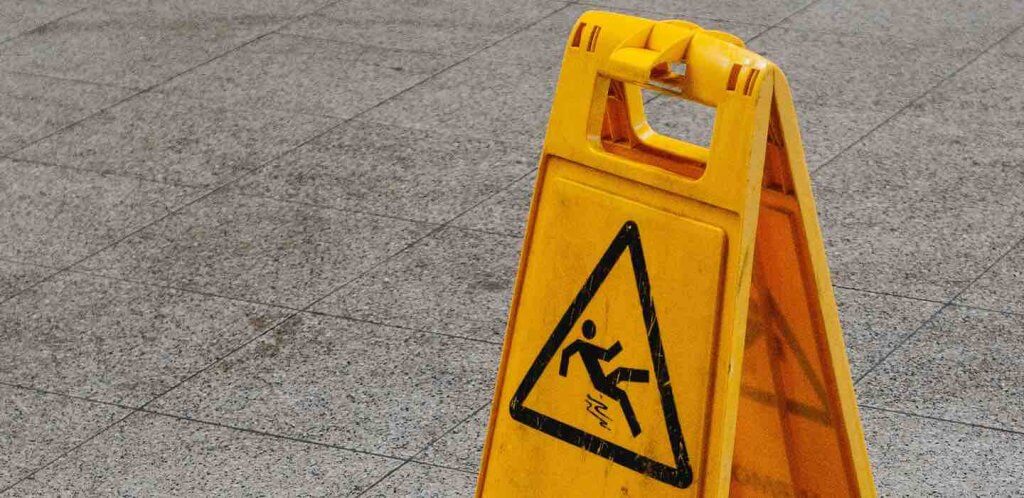Accidents happen, even in the aisles of our favorite supermarkets. Whether it’s a spill on a freshly mopped floor or an unexpected slip on a wayward grape, supermarket accidents can lead to serious injuries and potentially open the door to legal liability. Understanding who is responsible for these accidents and the resulting injuries is crucial to ensuring fair compensation for victims.
In this article, we delve into the complexities of liability in supermarket accidents, moving beyond simple slips and examining the various factors that come into play. From the duty of care supermarkets owe to their customers to the role of employee negligence, we explore the different elements that can determine liability. By understanding these factors, you’ll be better equipped to navigate the legal landscape and advocate for your rights if you find yourself injured in a supermarket accident.
So, if you’ve ever wondered how a simple slip can turn into a legal conundrum, join us as we delve into the world of supermarket liability. Let’s explore the potential pitfalls, shed light on the responsible parties, and uncover the key factors that can impact your claim.
Types of Supermarket Accidents
Supermarket accidents can take many forms, ranging from minor mishaps to more severe incidents. Understanding the types of accidents that can occur will help you better grasp the potential risks and liabilities involved.
Slips and Falls: Slipping on a wet floor or tripping over an obstacle are common accidents in supermarkets. These incidents can result from improper cleaning procedures, failure to display warning signs, or inadequate maintenance.
Falling Objects: Supermarkets often have shelves stacked with products reaching various heights. If these shelves are not properly secured or items are not stacked safely, there is a risk of objects falling and causing injury to customers.
Shopping Cart Collisions: The bustling nature of supermarkets can sometimes lead to shopping cart collisions. While these accidents may seem minor, they can still cause injuries, particularly if a customer is struck with significant force.
Car Parking Accidents: Supermarket accidents can also occur in the car parking. Slippery surfaces, poor lighting, and reckless driving can all contribute to accidents that happen outside the store.
Understanding the different types of accidents that can occur in supermarkets is essential in determining liability and seeking compensation for injuries sustained.
Common Causes of Supermarket Accidents
Supermarket accidents can occur due to a variety of reasons. By identifying the common causes, we can gain insight into the potential sources of liability.
Spills and Wet Floors: One of the leading causes of supermarket accidents is spills and wet floors. Whether it’s a spilled liquid or a freshly mopped area without proper warning signs, these hazards can lead to slips and falls.
Inadequate Maintenance: Poorly maintained premises can contribute to accidents. Examples include broken tiles, uneven flooring, or loose handrails. Supermarkets have a duty to regularly inspect and maintain their premises to minimize the risk of accidents.
Product Placement and Display: Supermarkets often display products in aisles and on shelves in a way that maximizes visibility and accessibility. However, if products are stacked precariously or placed in a manner that obstructs the aisles, it can lead to accidents.
Lack of Employee Training: Employees play a vital role in ensuring the safety of customers. If employees are not adequately trained in proper cleaning procedures, hazard identification, and customer assistance, it can increase the risk of accidents.
By understanding the common causes of supermarket accidents, we can further explore the liability of different parties involved and the steps victims can take to seek compensation.
Understanding Liability in Supermarket Accidents
Determining liability in supermarket accidents can be complex, as multiple parties may share responsibility. Let’s explore the different factors that come into play when determining liability.
Duty of Care: Supermarkets have a legal duty of care towards their customers. This means they must take reasonable measures to ensure the safety of their premises and protect customers from foreseeable harm.
Employee Negligence: If an employee’s negligence, such as failing to clean up a spill promptly or not properly securing merchandise, leads to an accident, the supermarket may be held liable.
Third-Party Negligence: In some cases, a third party may be responsible for an accident, such as a cleaning company hired by the supermarket. If their negligence contributes to the accident, they may share liability.
Contributory Negligence: If a customer’s own negligence contributes to the accident, their compensation may be reduced. For example, if a customer ignores warning signs or acts recklessly, their share of responsibility may be considered.
Determining liability in supermarket accidents often requires a thorough investigation of the circumstances surrounding the incident. It’s important to gather evidence, such as photographs, witness statements, and surveillance footage, to support your claim.
Proving Liability in Supermarket Accidents
To successfully pursue a claim for a supermarket accident, you must establish liability. This requires proving that the supermarket breached its duty of care and that this breach directly caused your injuries. Here are some essential elements to consider when proving liability:
Evidence: Gathering evidence is crucial to support your claim. This includes photographs of the accident scene, medical records documenting your injuries, witness statements, and any other relevant documents.
Causation: You must establish a direct link between the supermarket’s negligence and your injuries. This may require expert testimony or medical evidence to demonstrate how the accident caused your specific injuries.
Documentation: Keeping a record of all relevant documents, such as medical bills, receipts for expenses related to the accident, and any communication with the supermarket or their insurance company, will strengthen your case.
Legal Assistance: Seeking the guidance of a personal injury solicitor experienced in supermarket accidents can greatly increase your chances of success. They can navigate the legal complexities, negotiate with insurance companies, and advocate for your rights.
Remember, the burden of proof lies with the injured party in a personal injury claim. By gathering strong evidence and seeking legal assistance, you can present a solid case to establish liability and seek fair compensation.
Steps to Take After a Supermarket Accident
If you find yourself injured in a supermarket accident, taking the following steps can help protect your rights and strengthen your claim:
1. Seek Medical Attention: Your health should be your top priority. Seek medical attention for your injuries, even if they seem minor at first. Promptly documenting your injuries will help establish a link between the accident and your medical condition.
2. Report the Incident: Notify the supermarket management of the accident as soon as possible. Ask them to document the incident and provide you with a copy of the report. Be sure to keep a record of all communication with the supermarket and their representatives.
3. Gather Evidence: Take photographs of the accident scene, including any hazards or conditions that contributed to the accident. Collect contact information from any witnesses present. Preserve any physical evidence, such as torn clothing or damaged personal belongings.
4. Document Expenses: Keep a record of all expenses related to the accident, including medical bills, transportation costs, and any other out-of-pocket expenses. These records will help calculate the compensation you may be entitled to.
5. Consult a Solicitor: Engage the services of a personal injury solicitor who specializes in supermarket accidents. They can guide you through the legal process, evaluate your case, and negotiate with the supermarket or their insurance company on your behalf.
Taking these steps will not only help protect your rights but also provide the necessary evidence to establish liability and seek fair compensation for your injuries.
Seeking Compensation for Supermarket Accidents
If you’ve been injured in a supermarket accident due to the negligence of the supermarket or its employees, you may be entitled to compensation for various damages, including:
Medical Expenses: This includes the costs of medical treatment, hospital stays, surgeries, medications, and any other expenses directly related to your injuries.
Lost Wages: If your injuries prevent you from working, you may be entitled to compensation for the wages you have lost and any potential future earnings you may miss out on due to your injuries.
Pain and Suffering: Compensation for the physical pain, emotional distress, and loss of enjoyment of life caused by the accident and subsequent injuries may also be awarded.
Property Damage: If your personal belongings were damaged in the accident, you may be entitled to reimbursement for the repair or replacement costs.
Legal Fees: In many personal injury cases, lawyers work on a no win, no fee basis, meaning they only get paid if they win your case. This arrangement allows victims to seek legal representation without upfront costs.
To ensure you receive fair compensation, it is essential to have an experienced personal injury attorney by your side. They will fight for your rights, negotiate with insurance companies, and work towards securing the compensation you deserve.
Conclusion: Importance of Understanding Liability in Supermarket Accidents
Supermarket accidents can have serious consequences, from physical injuries to financial burdens. Understanding the concept of liability and the various factors involved is crucial for victims seeking fair compensation.
By recognizing the types of accidents that can occur, understanding common causes, and delving into the complexities of liability, you are better equipped to navigate the legal landscape. Taking the necessary steps after an accident, gathering strong evidence, and seeking legal assistance will help establish liability and increase your chances of securing fair compensation.
Remember, accidents in supermarkets can often result from negligence, and victims have the right to seek justice. By staying informed and advocating for your rights, you can ensure that supermarket owners and employees prioritize customer safety and take necessary precautions to prevent accidents in the future.
So, the next time you step into your favorite supermarket, keep in mind the importance of understanding liability. It may just empower you to take action and protect yourself and others from potential harm.
Let us help you





